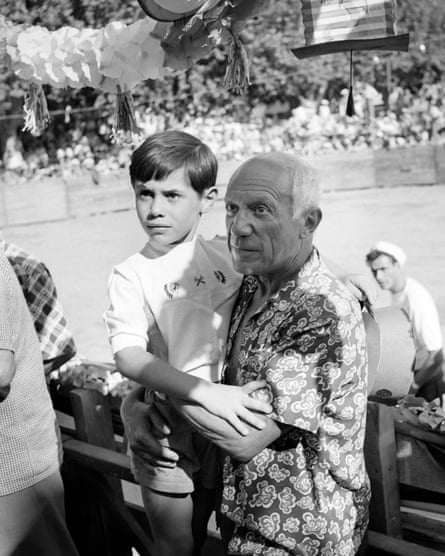Claude Ruiz Picasso, the younger son of Spanish artist Pablo Picasso, has died in Switzerland aged 76, his lawyer announced on Thursday.
Claude’s lawyer, Jean-Jacques Neuer, did not give the cause of death.
Claude was a photographer and film director, who also managed his father’s estate from 1989 until July this year, when he handed over responsibility to his younger sister, Paloma.

Claude worked as an assistant to famed photographer Richard Avedon for almost a year, and worked as a photojournalist for Time Life, Vogue and the US magazine Saturday Review. In 2011 he was awarded France’s highest honour, the Legion d’honneur, for his work as an artist and as the court-appointed administrator of his father’s estate.
Picasso had four children. Claude and Paloma were his children with French artist Françoise Gilot, who died in June aged 101. His elder son, Paul, from his marriage to ballet dancer Olga Khokhlova, died in 1975. Maya, his daughter with French model Marie-Therese Walter, died in 2022.
Picasso cut off contact with Claude and Paloma after Gilot, who was the first woman to leave him, wrote a memoir about their life together. He tried to prevent publication of her 1964 book, titled Life with Picasso.
In 1970, 22-year-old Claude sued in France to be recognised as the legitimate son, and therefore heir, of his father. The court ruled in his and Paloma’s favour, the siblings becoming heirs to Picasso a year after his death in 1973.
The Picasso estate remains one of among the richest dynasties in the art world. When Picasso died at the age of 91 in 1973, he left behind more than 45,000 works, among them 1,885 paintings, 1,228 sculptures, 7,089 drawings, 30,000 prints, 150 sketchbooks and 3,222 ceramic works. He also left millions in cash. Overall the estate was valued at £650m at the time.
“We’d have to rent the Empire State Building to house all the works,” Claude said when the inventory was completed.
As Picasso did not leave a will, the division of his holdings took six years and led to bitter divisions in the family. Eventually it was agreed that the works would be split between Claude, Paloma, Maya and two of his grandchildren, Marina and Bernard Ruiz-Picasso. Writer Deborah Trustman observed at the time that Picasso’s web of heirs “resembles one of [his] Cubist constructions – wives, mistresses, legitimate and illegitimate children (his youngest born 28 years after his oldest), and grandchildren – all strung on an axis like the backbone of a figure with unmatched parts.”
In 1989, Claude took over the Picasso estate, which involved handling copyright, reproduction and trademark issues, regularly taking legal action to fight forgeries and misuse. Representing one of the most pirated and copied artists in the world, the Picasso estate produced more and more official reproductions, to prevent others from financially benefitting from the public’s appetite for Picasso.
“I never expected or desired to have any kind of role like this, or have any influence over my father’s legacy,” Claude once told Picasso biographer John Richardson.
There were often disagreements within the family over the use of Picasso’s name and work. In 1999, when Claude sold the Picasso name and signature to the Citroën car company to release a hatchback named after the artist, his niece Marina publicly criticised him for having disrespected “a genius” who was “being used to sell something so banal as a car”. At the time, Claude’s lawyer told the Guardian that he was “perfectly entitled to exploit the Picasso brand name.”
In 2018, Claude criticised Paris’s Musée Picasso for lending out too many works, saying some exhibitions featuring Picasso works were “nondescript and do nothing more than surf on the magic of a great name.”
Claude is survived by his wife, Sylvie Vautier, and their two children.
Source : The Guardian


